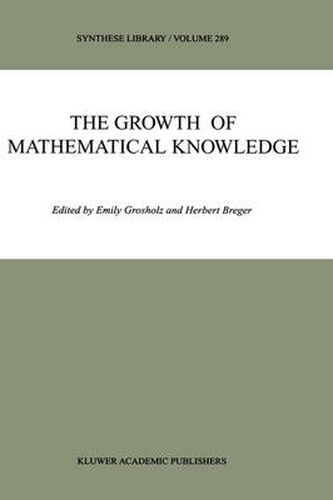Readings Newsletter
Become a Readings Member to make your shopping experience even easier.
Sign in or sign up for free!
You’re not far away from qualifying for FREE standard shipping within Australia
You’ve qualified for FREE standard shipping within Australia
The cart is loading…






This title is printed to order. This book may have been self-published. If so, we cannot guarantee the quality of the content. In the main most books will have gone through the editing process however some may not. We therefore suggest that you be aware of this before ordering this book. If in doubt check either the author or publisher’s details as we are unable to accept any returns unless they are faulty. Please contact us if you have any questions.
Inspired by Hilbert, Wittgenstein, Cavailles and Lakatos, this work aims to reconfigure contemporary philosophy of mathematics by making the growth of knowledge rather than its foundations central to the study of mathematical rationality, and by analyzing the notion of growth in historical as well as logical terms. It is organized in dialogical forms, with each philosophical thesis answered by one or more historical case studies designed to support, complicate or question it. The first part of the book examines the role of scientific theory and empirical fact in the growth of mathematical knowledge. The second examines the role of abstraction, analysis and axiomatization. The third raises the question of whether the growth of mathematical knowledge constitutes progress, and how progress may be understood.
$9.00 standard shipping within Australia
FREE standard shipping within Australia for orders over $100.00
Express & International shipping calculated at checkout
This title is printed to order. This book may have been self-published. If so, we cannot guarantee the quality of the content. In the main most books will have gone through the editing process however some may not. We therefore suggest that you be aware of this before ordering this book. If in doubt check either the author or publisher’s details as we are unable to accept any returns unless they are faulty. Please contact us if you have any questions.
Inspired by Hilbert, Wittgenstein, Cavailles and Lakatos, this work aims to reconfigure contemporary philosophy of mathematics by making the growth of knowledge rather than its foundations central to the study of mathematical rationality, and by analyzing the notion of growth in historical as well as logical terms. It is organized in dialogical forms, with each philosophical thesis answered by one or more historical case studies designed to support, complicate or question it. The first part of the book examines the role of scientific theory and empirical fact in the growth of mathematical knowledge. The second examines the role of abstraction, analysis and axiomatization. The third raises the question of whether the growth of mathematical knowledge constitutes progress, and how progress may be understood.